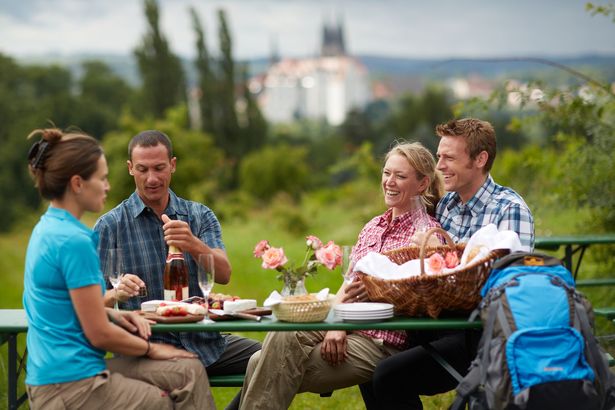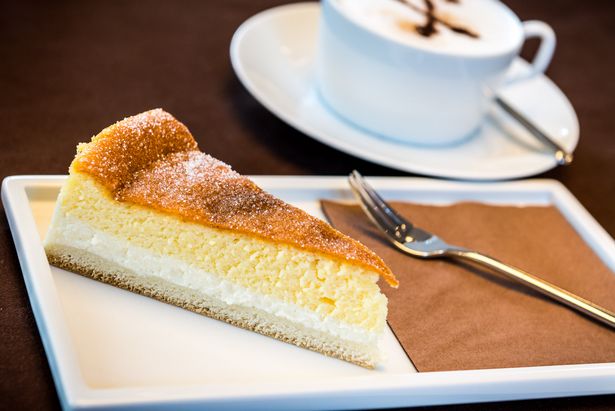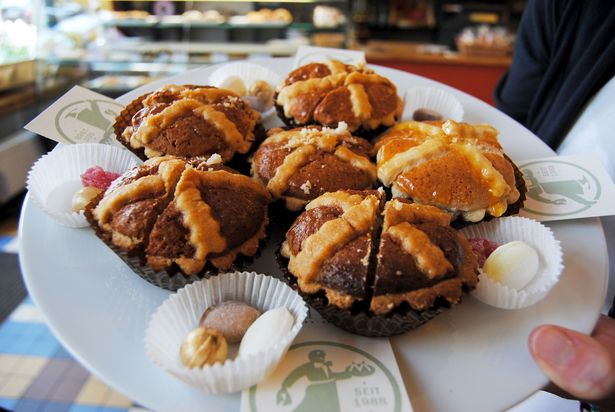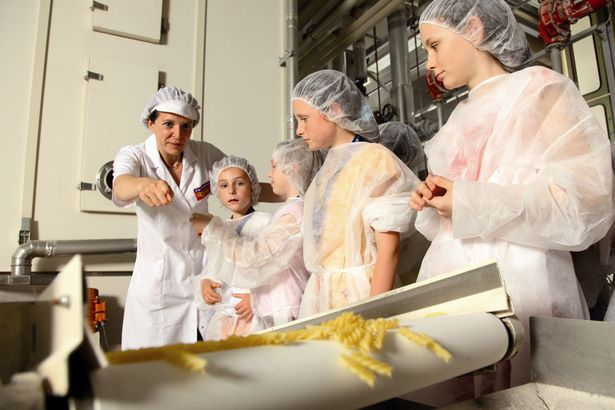The taste of Saxony can be anything from spicy, refreshing and sweet to bubbly or hearty. Whatever it may be, there is something special for everyone on the menu. You can eat your way through many regional specialities and try famous beers, excellent wines and sweet delicacies such as the Dresdner Eierschecke cake. Enjoy top quality culinary experiences in welcoming surroundings – Saxony definitely has a big heart for foodies!
The taste of Saxony
A joyful experience: eating and drinking in Saxony
„No pleasurable experience is temporary, for the impression it leaves behind is permanent.”
Discover a very special wine region
Wines from Saxony's Elbe Valley, where wine growing goes back more than 850 years, have a very distinctive aroma: The impressive steep slopes and picturesque terraced vineyards along the Elbe River enjoy a continental climate with warm daytime temperatures and cool nights. This diurnal range allows the grapes to ripen in a unique way.
Tip: Explore the scenic Saxon Wine Route (approx. 35 miles), where you’ll also find a wine museum at the Hoflößnitz wine growing estate.
Dive into Saxony’s impressive history of brewing beer
Cheers to Saxony’s almost 1,000-year-old tradition of brewing beer, which is still very much alive today. 310 different types of beer are brewed in the region. The best-known ones are Radeberger with the first German Pilsner and Dresdner Feldschlößchen. Smaller breweries in particular offer many special beers, adding diversity to the range on offer, and you can sample anything including export beer, lager, black beer, wheat beer or even kosher varieties.
Tip: Pencil in a brewery tour including tasting, e.g., in the “beer town” of Radeberg approx. 10 miles east of Dresden.
„The Eierschecke is a type of cake that, to the detriment of mankind, has remained unknown to the rest of the globe.”
Dresden’s sweet delights
Happiness comes in many shapes and sizes and for us, definitely also in the form of this three-layered cake: Dresdner Eierschecke is a classic (and mouth-watering) Saxon bake. The cake consists of a loose yeast dough, a moist quark layer and a fluffy egg mixture. The latter is beaten with butter, sugar and vanilla pudding until fluffy and becomes the cake’s top layer. Trust us, it’s a heavenly treat!
Tip: In the “Sophienkeller” restaurant in Dresden's Taschenbergpalais you can witness how the Eierschecke is prepared.
Of coffee, cake and Christmas stollen
Saxony’s most important drink? That’s arguably coffee. Which has a long tradition here. As early as in the 18th century, soldiers refused to take up arms during the Seven Years' War without their daily coffee fix. Equally important is that coffee is accompanied by a delicious piece of cake, such as the above mentioned Eierschecke and Leipziger Lerchen, made of shortcrust pastry, marzipan and jam. Or Meißner Fummel. This traditional pastry comes in the size of a handball and is made of sweet wafer dough. It is hollow inside and very fragile. The Ziegler bakery in Meissen is the only bakery in the whole world that is allowed to make it. Dresdner Stollen is equally unique, carrying a golden quality and EU seal. It’s only original when made in Dresden and the surrounding district. More precisely, made by hand and without margarine, artificial preservatives and flavourings. Mandatory ingredients that are specified by the “Stollen Protection Association” (yes, that’s a thing!) include raisins, butter, sweet and bitter almonds, candied orange peel and lemon peel, flour, water and yeast. The end result is simply delicious.
Hearty and traditional: more foodie adventures in Saxony
Anyone into mustards and pasta (not necessarily at the same time)? Saxony has a special relationship with both: Bautzen in Upper Lusatia is known throughout Germany for its medium-hot, horseradish-flavoured mustard which has been produced in town for more than 150 years, based on an unchanged recipe. Next on the menu are pasta and the town of Riesa where only GMO-free local durum wheat is used for production, resulting in an unmistakable taste. Visit the Nudelcenter Riesa (booking required) to dive deep into the world of Saxony’s very own pasta!
Tip: Try special mustard varieties in Bautzen‘s Mustard Museum for a spicy treat!





